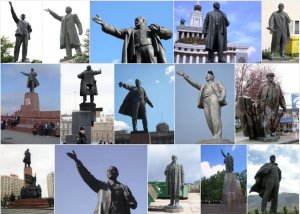For de som er interessert. Her er en liten tekst om Marx' religionskritikk, skrevet av Harvard professor Michael E. Rosen:
Marx presents the implications of these criticisms for the critique of religion in the ‘Critique of Hegel’s Philosophy of Right: Introduction’. This short essay is a compressed masterpiece of vehement rhetoric, seething with antithesis and chiasmus. In Germany,Marx writes, ‘the critique of religion is essentially completed’. Thus the problem is how to go beyond it. Marx’s first step is to explain the significance of that critique, as he understands it.
The world of religion is a reflection of a particular form of society: ‘This state,this society, produce religion, which is an inverted world-consciousness, because theyare an inverted world.’ Only an inverted secular world, that is to say, would producereligion as its offshoot. In religious belief, Man finds himself reflected in the ‘fantasticreality of heaven’, whilst he can find only ‘the semblance of himself, only a non-humanbeing’ in this world. Religion thus provides a realm in which individuals can realizethemselves, at least partially, given that full and adequate self-realization is not possiblein the profane world. In this way, religion preserves the social order of which it is a by-product, both by deflecting attention from its defects and by providing a partial escapefrom it. In Marx’s famous words, ‘Religion is the sigh of the oppressed creature, theheart of a heartless world and the soul of soulless conditions. It is the opium of thepeople.’
Thus religion and the form of life associated with it are open to criticism at threepoints. (1) There is, first, the impoverished and distorted world of which religion is aby-product. (2) There is the way in which the image of reality produced by religion isfalsely transfigured. (3) Finally, there is the failure by human beings to recognize the fact that religion has its origins in mundane reality.
It is this last element towards which the critique of religion is directed. Critiqueof religion connects religion back to its unacknowledged origins in social existence.Yet this is not enough. The critique of religion, inasmuch as it is a call to people toabandon their illusions, is also, according to Marx, ‘the call to abandon a conditionthat requires illusions’. By itself the critique of religion cannot remove the distortionand impoverishment of the world from which religion arises. This is, of course, Marx’s real project, for which the criticism of religion has merely prepared the ground.
Once the criticism of religion has done its work, philosophy must move on ‘tounmask human self-alienation in its secular forms.’ The critique of religion ends, Marx says, ‘in the doctrine that man is the supreme being for man; thus it ends with thecategorical imperative to overthrow all conditions in which man is a debased, enslaved,neglected, contemptible being’.
Much of this analysis represents common ground between Marx and his YoungHegelian former associates. Marx concedes that philosophy has both a critical role to play in exposing the illusions of religion and an affirmative one in establishing an ideal of human fulfilment. Nevertheless, Marx takes the Young Hegelians to task for thinkingthat philosophy alone provides a sufficient condition for human emancipation. Philos-ophy, he maintains, must move beyond itself: ‘criticism of the speculative philosophyof right does not remain within itself, but proceeds on to tasks for whose solution there is only one means—praxis.’ For this a material force, a ‘class with radical chains’, isrequired, namely, the proletariat.
At this stage, then, Marx is critical, not so much of the content of philosophy but ofwhat we might call the meta-philosophical belief associated with it: that it is possible(as he puts it in relation to the Young Hegelians) ‘to realize philosophy without tran-scending it’. A truly successful critique of religion would require the transformation ofthe social conditions within which religion is generated and sustained.





